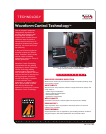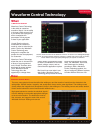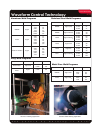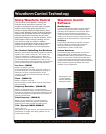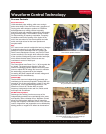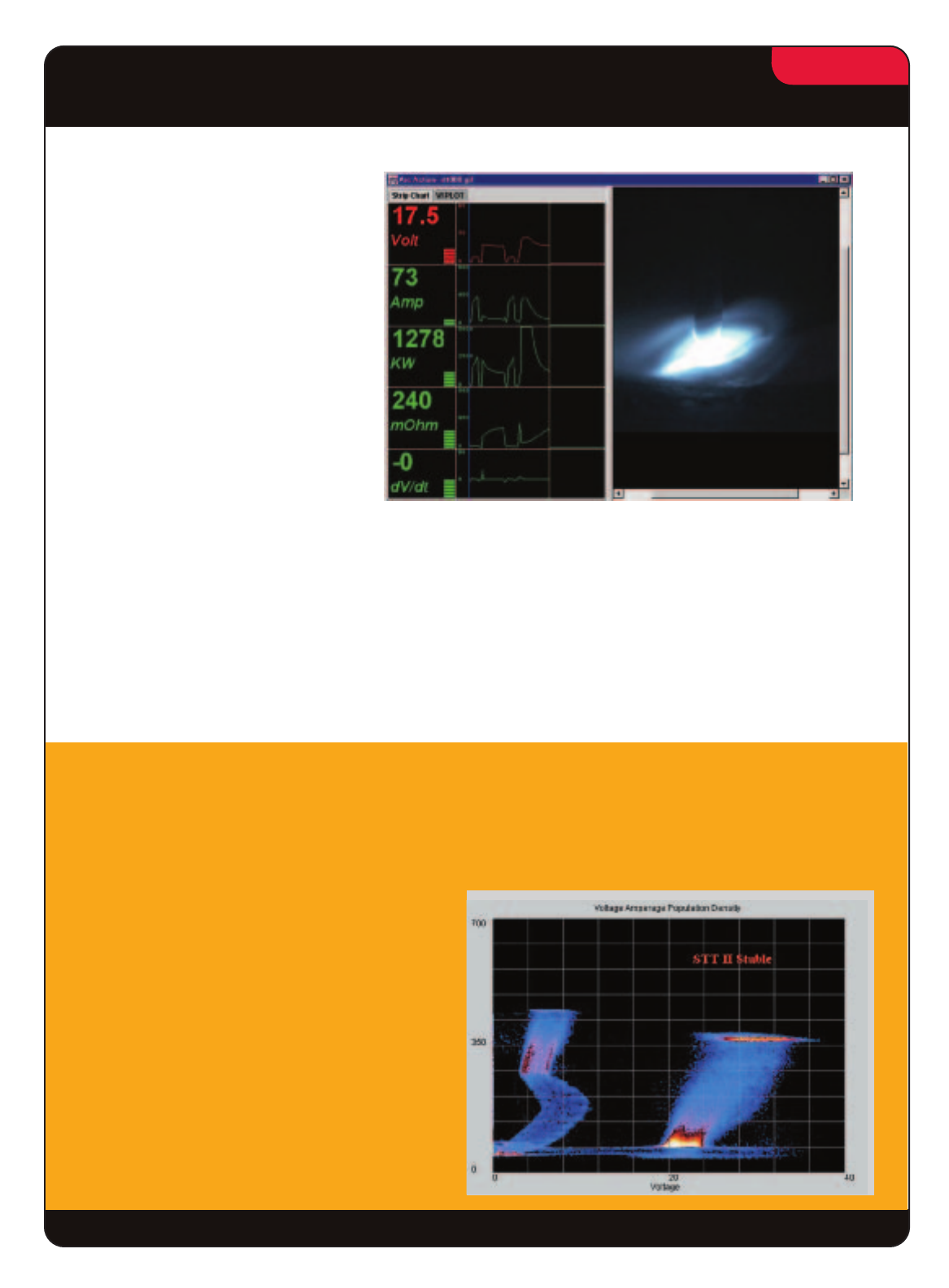
TECHNOLOGY
2/8
Waveform Control Technology
Waveform Control Technology
is the ability to customize
waveform output. It is the ability
to choose a weld program from
a pre-defined set of programs,
and to manipulate the
parameters of that program
to best fit your application.
Lincoln Electric strives to
understand the customer’s
needs in order to make the job
easier. That is why Waveform
Control Technology was
designed: to empower the
people who use the equipment,
our customers.
Waveform Control Technology
allows the user to choose from
a library of pre-programmed
weld “modes” that have been
developed by expert welders.
Then, Waveform Control
Technology offers the
opportunity to change those
What
is Waveform Control?
The future of welding is here.
®
There are many physical forces that affect the welding arc and the transfer of metal from the electrode to the
weld puddle. Surface tension, magnetic, and aerodynamic forces are the most significant. The welding current
directly affects the magnetic and aerodynamic forces in the welding arc. The welding current and surface tension
forces can be balanced to control metal transfer within the arc.
High-speed electronics monitor the electrical signals
from the welding arc and make appropriate changes
to the current waveform. The electronics must be
fast, accurate, and rugged to control the arc and
withstand the harsh welding environment.
How
Waveform Control Works
Amperage
values, within a programmed range,
to find the combination of wire feed
speed, voltage, current, and arc
control that the application requires.
But Lincoln has even taken it one
step further. Waveform Control
Technology also provides the ability
to use a single source to perform
Stick, TIG, MIG/MAG, Flux-cored,
and Submerged Arc welding
procedures. With a Waveform
Control Technology product, the
days of configuring different systems
to make different welds are over.
The Arc Action Tool shows the behavior of the arc in the form of a Voltage/Amperage
(VI) plot. To further illustrate what the changes in voltage and current mean to the arc,
Lincoln Electric uses high-speed photography to capture arc behavior.



